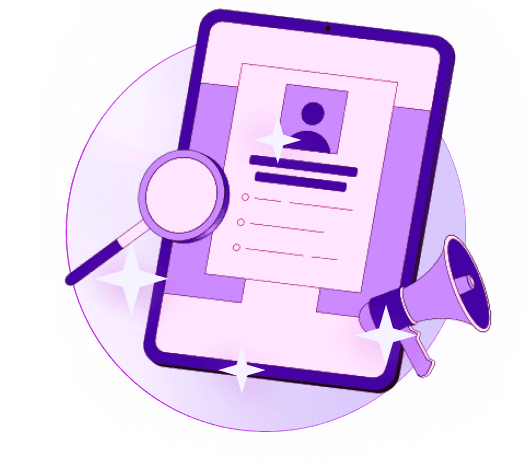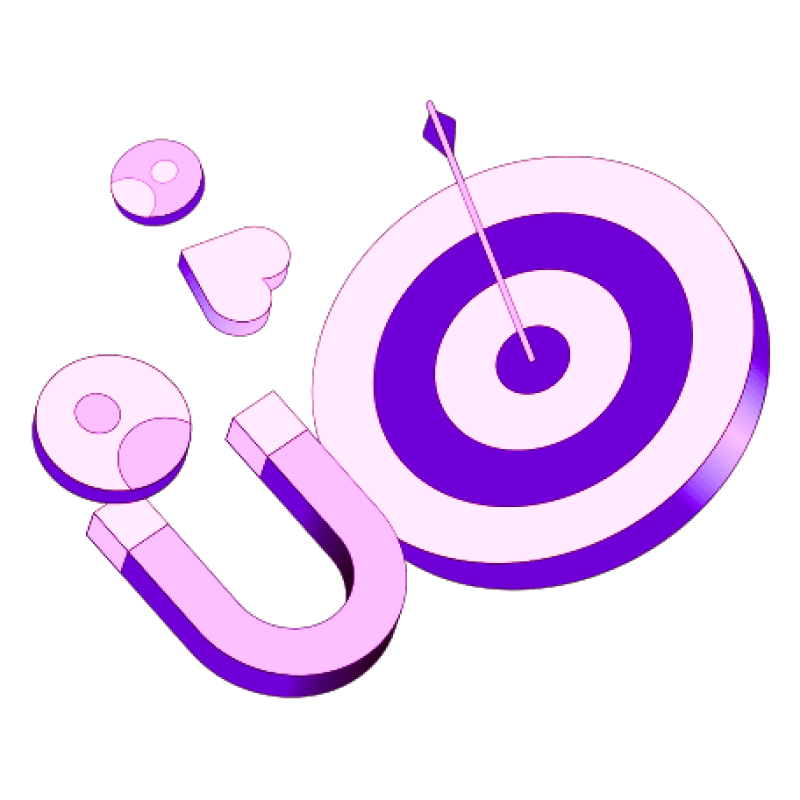Blogs
Articles


10 Best Sales Productivity Tools That Actually Work in 2025
Here's a shocking reality: 41% of your sales team's workday isn't actually spent selling. If you're looking for the best sales productivity tools to fix this, you're not alone.
Top-performing sales teams use three times as many sales tools as their less successful competitors. However, with sales teams currently juggling an average of 10 different tools, 94% plan to consolidate their tech stack this year to boost productivity.
What are sales productivity tools?
Sales productivity tools are software applications that empower sales teams to sell more effectively while reducing time spent on administrative tasks. These tools range from simple automation software to comprehensive sales engagement platforms that handle multiple aspects of the sales process.
Primarily, these tools serve three core functions. First, they automate repetitive tasks like data entry and follow-ups. Second, they provide sales teams with quality information needed to close deals. Third, they optimize the entire selling process through improved communication and workflow management.
A sales productivity tool can be:
Task automation software that streamlines repetitive work
Communication platforms that enhance client interactions
Integration tools that connect sales with other departments
Analytics solutions that provide actionable insights
Document management systems for proposals and contracts
Why do you need sales productivity tools?
Sales teams face a significant challenge: only 39% of their time is spent actively selling or engaging with prospects. The remaining hours get consumed by administrative tasks, reporting, and travel. This creates a pressing need for tools that boost productivity and streamline operations.
Sales productivity tools address these challenges by automating repetitive tasks and simplifying complex processes. Consider this: sales representatives typically dedicate 70% of their workday to non-selling activities. Consequently, businesses that implement productivity tools can automate up to 50% of administrative tasks, freeing up 20% more time for revenue-generating activities.
Types of sales productivity tools
Modern sales teams rely on diverse productivity tools to optimize their workflows. Primarily, these tools fall into thirteen distinct categories, each serving specific functions in the sales process.
Pipeline Management tools give sales teams complete visibility into every stage of their sales funnel, enabling better deal prioritization and forecasting. Subsequently, Sales Enablement solutions equip teams with necessary resources, reducing the sales cycle length and improving win rates by up to 25%.
Sales Engagement platforms track and analyze buyer interactions, while Time Tracking tools help identify where sales reps lose valuable time. Accordingly, Dialers can save up to 45 minutes per day for sales representatives, automating call logging and reducing idle time between calls.
The most essential categories of sales productivity tools include:
Cold Emailing - Automates multichannel outreach while maintaining personalization
Prospecting - Helps identify ideal buyers and engage them effectively
Lead Enrichment - Enhances existing sales data for better prospect connections
Meeting Scheduling - Eliminates scheduling back-and-forth
Sales Intelligence - Provides data-driven insights for strategic decisions
Proposal Creation - Streamlines personalized, professional proposal generation
Configure-Price-Quote (CPQ) - Configure-Price-Quote (CPQ) – Automates complex pricing calculations, enabling faster, more accurate quotes and reducing back-and-forth in deal negotiations. Platforms like Salesforce CPQ streamline configuration and pricing, especially for SaaS companies where quoting speed and accuracy directly influence conversion. For a deeper dive into how to optimize CPQ for SaaS, Think Beyond outlines how SaaS providers can use Salesforce to boost first impressions, reduce friction, and drive more consistent wins.
Indeed, these tools harness AI and automation to handle repetitive tasks, allowing sales teams to focus on relationship building. Generally, sales teams using these tools report significant improvements in productivity, with studies showing that top-performing teams utilize three times more sales tools than their competitors.
10 best sales productivity software tools to try out this year
In an era where efficiency defines success, selecting the right sales productivity tools can make a significant difference. Primarily, teams equipped with the proper tools generate more leads and close deals faster.
Persana AI stands out for its advanced sales intelligence capabilities, while HubSpot Sales Hub excels in sales automation. Gong.io transforms sales conversations through AI-powered analytics, and Outreach streamlines multi-channel engagement for better prospect connections.
LinkedIn Sales Navigator emerges as a powerhouse for social selling, offering advanced lead search features. Simultaneously, Calendly eliminates scheduling hassles, saving countless hours in back-and-forth communications.
For document management, DocuSign remains the industry standard in digital agreements. Zoom has evolved beyond video conferencing, offering AI-powered conversation intelligence that enhances sales meetings.
Apollo.io shines in data-driven prospecting with robust email automation features. Hence, Lavender, an AI email writing assistant, helps craft more impactful sales messages that drive better responses.
Persana AI: The Foundation of Sales Productivity

Persana AI emerges as a signal-based selling platform that unifies every touchpoint across the buyer's journey. Initially designed for efficiency, the platform reduces sales cycle time by 65% and boosts conversion rates by 30%.
Key Salesforce Features for Sales Teams:
Primarily integrated as a Salesforce native workflow, Persana AI streamlines prospecting at scale. The platform automatically identifies decision-makers and tracks product champions, markedly reducing manual research time. Undoubtedly, its sophisticated analytics pinpoint leads with the greatest conversion potential, rooted in key fit attributes and behaviors.
Persana AI Capabilities
The platform's AI agents operate round-the-clock, evidently transforming traditional sales approaches through:
Research agents for real-time data gathering
Autopilot agents for automated follow-up
Predictive agents for trend analysis
Forthwith, Persana AI connects with over 75 intent data sources, enabling teams to track job changes and analyze hiring trends in real-time. The platform's waterfall approach to data enrichment enhances match rates, delivering higher accuracy than competing solutions.
Persana Pricing
The platform offers flexible pricing with credit rollover benefits capped at 2x monthly limits. Most enrichments cost only one credit, including AI Agent usage, profile information, and decision-maker finder features.
HubSpot Sales Hub: Complete Sales Enablement

Through advanced automation and AI integration, HubSpot Sales Hub helps teams close 36% more deals and see a 37% improvement in ticket closure rates.
HubSpot's Sales Automation Features
The platform's automation capabilities significantly reduce manual tasks through intelligent workflows and sequences. Sales teams can automate lead rotation, create personalized email sequences, and streamline prospect follow-up. Primarily, these features enable teams to:
Scale personalized outreach with dynamic sequences
Automate lead distribution and task creation
Measure campaign effectiveness through A/B testing
Integrate seamlessly with Gmail and Outlook
Create automated pipeline stages
HubSpot AI Capabilities
Presently, HubSpot's AI assistant, Breeze, powers various aspects of the sales process. The platform generates professional sales emails tailored to prospects, ultimately saving teams considerable time while maintaining personalization. Sales teams using HubSpot's AI tools report 129% more leads acquired within their first year.
HubSpot Pricing
The platform offers multiple tiers, starting with a free plan that includes basic sales tools. Professional and Enterprise editions unlock comprehensive features like advanced automation, predictive analytics, and custom object creation.
Gong.io: AI-Powered Sales Intelligence

Gong stands out through its purpose-built AI technology, analyzing billions of sales interactions to deliver unmatched accuracy in sales intelligence.
Conversation Intelligence Features
The platform's core strength lies in its ability to process unstructured data from spoken, written, and video conversations between buyers and sellers. Through advanced call recording and transcription, Gong consistently tracks common objections, buyer signals, and topics of interest. The platform effectively measures productivity behaviors, such as discovery effectiveness and messaging execution at each sales stage.
Gong AI Capabilities
The platform employs 40+ specialized AI models built exclusively for revenue teams. These models excel at:
Detecting crucial topics and customer risks
Generating personalized follow-up content
Automating CRM updates and coaching feedback
Predicting revenue outcomes with high accuracy
Analyzing over 300 unique signals from customer conversations
Gong Pricing
The platform implements a per-recorded-user licensing model. Each license includes varying levels of functionality based on the chosen seat edition. The annual platform fee ranges from USD 5,000 to USD 50,000, covering unlimited data storage, calendar integrations, and comprehensive support.
Outreach: Advanced Sales Engagement

Powered by sophisticated AI technology, Outreach delivers 287% higher customer engagement through its multi-channel approach.
Multi-channel Engagement Features
The platform's multi-channel strategy primarily focuses on seamless integration across social media, email, SMS, and calling platforms. Coupled with personalized communication, teams experience stronger customer connections through:
Automated prospect research and list generation
Real-time call transcription with customized speech recognition
Personalized message templates across channels
Integrated meeting analytics and summaries
AI-Guided Selling
In light of modern sales challenges, Outreach's AI predicts deal closures with 81% accuracy. The platform's AI capabilities analyze engagement signals across emails, calls, and meetings to recommend optimal actions. Thus, sales teams receive AI-generated summaries of account activities, coupled with insights about buyer sentiment and conversation topics.
Outreach Pricing
The platform offers four distinct pricing tiers, analogous to different team needs. Standard plans begin at $100 per user monthly, while Professional plans include advanced AI capabilities like deal scoring and triggered content cards.
LinkedIn Sales Navigator: Social Selling Power

With over 700,000 sales professionals relying on its platform, LinkedIn Sales Navigator stands as a cornerstone for modern B2B prospecting and lead generation.
Advanced Lead Search Features The platform's sophisticated search functionality employs 50+ specific attributes for precise targeting. Sales teams can effectively filter prospects based on:
Current job titles and company details
Geography and headquarters location
Seniority levels and functions
Industry and company headcount
InMail Capabilities
The platform's InMail system enables direct communication with any LinkedIn member, bypassing the need for introductions or contact information. Distinctly, users receive credit refunds for messages that get responses within 90 days. The system supports attachments up to 200MB and offers features like:
Quick replies for efficient responses
Slide-in profiles for reference during conversations
LinkedIn Scheduler for seamless meeting coordination
LinkedIn Sales Navigator Pricing
The platform offers three distinct tiers:
Core Plan: USD 99.99/month or USD 959.88/year
Advanced Plan: USD 179.99/month or USD 1679.88/year
Advanced Plus Plan: Custom enterprise pricing
Fundamentally, annual subscriptions provide a 20% cost reduction. The Advanced plan includes additional features like CRM integration and buyer intent signals, while Advanced Plus offers enterprise-level capabilities such as custom reporting and ROI tracking.
Calendly: Streamlined Meeting Management

Streamlining meeting coordination remains a critical challenge for sales teams, with Calendly emerging as a powerful solution that saves teams an average of 4 hours per week on scheduling tasks.
Automated Scheduling Features
The platform's scheduling automation eliminates back-and-forth emails through intelligent calendar management.
Sales teams can:
Connect multiple calendars to prevent double-booking
Set buffer times between meetings
Create customized meeting types
Generate unique video conferencing links
Embed scheduling on websites and emails
Calendly AI Capabilities
Calendly's upcoming AI features focus on optimizing the entire meeting lifecycle. The platform's AI developments aim to enhance meeting preparation, engagement, and follow-up processes. These capabilities will support sales teams through automated meeting summaries and intelligent scheduling recommendations based on past patterns.
Calendly Pricing
The platform offers four distinct pricing tiers:
Free: Basic scheduling with 1 event type
Standard: USD 10/seat/month with unlimited event types
Teams: USD 16/seat/month with advanced team features
Enterprise: Custom pricing for large organizations
Teams using the paid plans gain access to advanced features like Salesforce integration, round-robin scheduling, and comprehensive analytics. Ultimately, the platform's tiered pricing structure ensures organizations can scale their scheduling capabilities as needed.
DocuSign: Digital Agreement Excellence

As a cornerstone of digital transformation, DocuSign revolutionizes agreement processes through its comprehensive electronic signature platform. The platform processes more than a million documents daily, establishing itself as an essential sales productivity tool.
eSignature Capabilities
DocuSign's electronic signature technology ensures legal compliance across global markets. The platform's tamper-evident sealing system employs Public Key Infrastructure (PKI) technology, distinctly protecting document integrity. Primary features include:
Real-time status tracking
Multi-device signing support
SMS and WhatsApp delivery options
Advanced authentication methods
Comprehensive audit trails
Contract Management Features
Fundamentally, DocuSign's Contract Lifecycle Management (CLM) streamlines the entire agreement process. The platform's AI capabilities enable automatic identification of common contract terms, while automated workflows remove process bottlenecks. Teams using DocuSign CLM report a 90% reduction in contract generation time.
DocuSign Pricing
The platform offers four distinct pricing tiers:
Personal: USD 10/month with basic eSignature features
Standard: USD 25/month including professional signing experiences
Business Pro: USD 40/month with advanced workflow capabilities
Enterprise: Custom pricing for comprehensive solutions
Certainly, the Business Pro tier emerges as popular among sales teams, offering streamlined workflows and advanced customization. Besides standard features, this tier includes payment processing capabilities and CRM integration options.
Zoom: Virtual Sales Enablement

Beyond traditional video meetings, Zoom has evolved into a comprehensive sales productivity platform, processing over 3.3 trillion meeting minutes annually.
Video Conferencing Features
The platform's dynamic video layouts automatically adapt to active speakers, primarily focusing on enhancing sales presentations. Sales teams benefit from:
Real-time transcription and translation in 33 languages
Interactive whiteboarding for product demonstrations
Native integration with CRM systems
Team chat channels for pre and post-meeting collaboration
Advanced screen sharing capabilities
Zoom AI Capabilities
Distinctly, Zoom's AI Companion transforms sales conversations through intelligent features. The platform automatically generates meeting summaries, action items, and smart chapters for quick reference. Sales teams can access conversation analytics, topic tracking indicators, and engagement metrics to optimize their approach.
Zoom Pricing
The platform offers multiple tiers tailored to different team sizes:
Basic Plan: Free with 40-minute meeting limit
Pro Plan: USD 14.99/month with extended features
Business Plan: USD 21.99/month including 300 participants
Enterprise: Custom pricing with unlimited cloud recording
Apollo.io: Data-Driven Prospecting

Boasting a database of 275M+ verified contacts, Apollo.io stands as a powerhouse in data-driven sales prospecting.
Lead Generation Features
The platform's B2B database encompasses 65+ filters for precise targeting. Sales teams leverage Apollo's AI-powered lead scoring to identify high-potential prospects through:
Intent signal tracking powered by Bombora
Website visitor identification
Automated list building with custom attributes
Multi-source data enrichment across providers
Email Automation
Primarily, Apollo's AI power-ups transform outreach through personalized messaging at scale. The platform's automation capabilities enable teams to customize sequences based on prospect attributes. Distinctly, the system includes conditional logic for tailoring outreach, fundamentally improving engagement rates through automated workflows.
Apollo.io Pricing
The platform offers three core pricing tiers with annual billing discounts:
Basic: USD 49/month (USD 59 monthly)
Professional: USD 79/month (USD 99 monthly)
Organization: USD 119/month (USD 149 monthly, minimum 3 users)
Ultimately, each tier includes unlimited email credits subject to fair usage. The Professional plan unlocks advanced features like AI-assisted email writing and integrated dialer capabilities.
Lavender: AI Email Writing Assistant

Transforming email outreach through data-driven insights, Lavender helps sales teams achieve double the reply rates for emails scoring 90 or above.
Email Writing Features
The platform's email coach analyzes messages in real-time, providing instant improvements and personalization suggestions. Primarily, the system scores emails based on billions of data points, fundamentally changing how sales teams craft their messages. The platform's mobile editor distinctly optimizes emails for mobile devices, considering that 81% of emails are read on phones.
Lavender AI Capabilities
The platform employs multiple AI systems, including OpenAI and custom-trained large language models. These models power features like:
Real-time coaching based on inbox patterns
Personality-based insights for deeper connections
Data-backed email suggestions
Performance tracking with ROI metrics
Pricing Options
Lavender offers three comprehensive tiers:
Basic (Free): Includes 5 emails monthly analysis and basic features
Pro ($29/month): Unlimited emails, AI recommendations, and multi-inbox support
Enterprise ($49/month): Adds team functionality, custom AI scoring, and granular insights
Which types of sales productivity tools do you need?
Selecting the right mix of sales productivity tools requires careful consideration of your team's specific needs. Primarily, businesses should focus on tools that automate repetitive tasks, enabling sales representatives to dedicate more time to customer-facing activities.
Before investing in any sales productivity software, evaluate these essential factors:
Integration capabilities with existing tech stack
Ease of adoption and user interface design
Training and support resources availability
Regular updates and improvements schedule
Performance scalability as your business grows
Security features and compliance requirements
Conclusion
Sales productivity tools have become essential for modern sales teams, with top performers using three times more tools than their competitors. These solutions save valuable time by automating administrative tasks, allowing sales representatives to focus on building customer relationships and closing deals.
Through our analysis of the top 10 sales productivity tools, we found that each serves specific needs - from Gong's conversation intelligence to Calendly's scheduling automation. The right combination depends on your team's unique requirements and existing workflow.
Successful implementation starts with identifying your core challenges. Teams should prioritize tools that integrate seamlessly with their current tech stack while addressing their most pressing productivity bottlenecks.
Ready to boost your sales team's efficiency? Start your journey with Persana AI to experience AI-powered sales intelligence that reduces sales cycles by 65%.
The future of sales productivity lies in smart tool selection rather than tool quantity. Teams that carefully choose and implement these solutions while maintaining focus on customer relationships will see the greatest success in 2025 and beyond.
FAQ
What are the four types of productivity tools?
The primary categories of productivity tools encompass:
Communication Tools: Platforms for team collaboration and client interaction
Task Management Solutions: Software for organizing and tracking activities
Document Management Systems: Tools for creating and sharing sales materials
Analytics Platforms: Solutions for tracking performance metrics and generating insights
How to boost sales productivity?
To enhance sales productivity, focus on these proven strategies:
Implement automation for repetitive tasks
Utilize data-driven insights for decision making
Invest in continuous training and development
Streamline communication channels
Regularly analyze and optimize sales processes
What software do sales reps use?
Contemporary sales representatives rely on diverse tools to maximize their efficiency:
CRM Systems: For managing customer relationships and tracking interactions
Email Automation: To streamline outreach and follow-ups
Meeting Schedulers: For coordinating appointments efficiently
Sales Intelligence: To gather prospect information and insights
E-signature Solutions: For digital document management
What makes a productive sales tool?
An effective sales tool should demonstrate measurable impact on key performance indicators. Primarily, it should reduce manual tasks, integrate smoothly with existing systems, and provide clear analytics for tracking success. Above all, the tool must align with your team's specific needs and workflow patterns.


Create Your Free Persana Account Today
Join 5000+ GTM leaders who are using Persana for their outbound needs.
How Persana increases your sales results
One of the most effective ways to ensure sales cycle consistency is by using AI-driven automation. A solution like Persana, and its AI SDR - Nia, helps you streamline significant parts of your sales process, including prospecting, outreach personalization, and follow-up.

